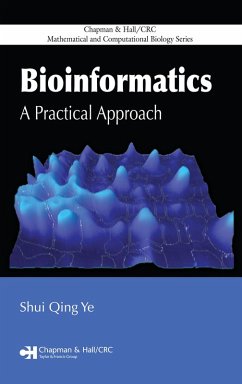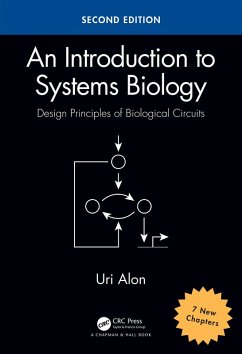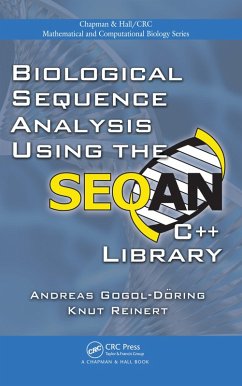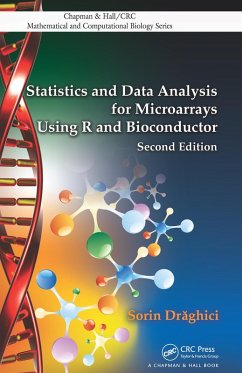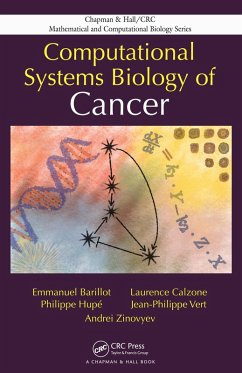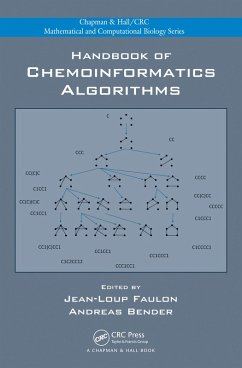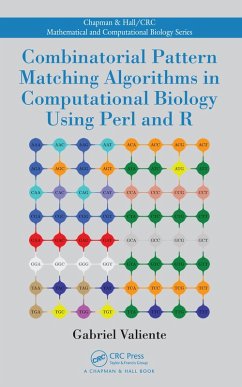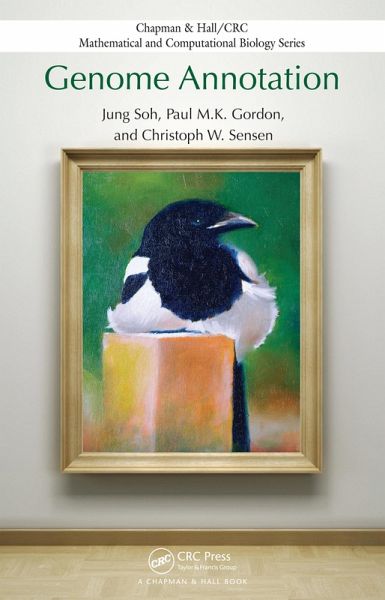
Genome Annotation (eBook, PDF)
Versandkostenfrei!
Sofort per Download lieferbar
51,95 €
inkl. MwSt.
Weitere Ausgaben:

PAYBACK Punkte
26 °P sammeln!
The success of individualized medicine, advanced crops, and new and sustainable energy sources requires thoroughly annotated genomic information and the integration of this information into a coherent model. A thorough overview of this field, Genome Annotation explores automated genome analysis and annotation from its origins to the challenges of next-generation sequencing data analysis.The book initially takes you through the last 16 years since the sequencing of the first complete microbial genome. It explains how current analysis strategies were developed, including sequencing strategies, s...
The success of individualized medicine, advanced crops, and new and sustainable energy sources requires thoroughly annotated genomic information and the integration of this information into a coherent model. A thorough overview of this field, Genome Annotation explores automated genome analysis and annotation from its origins to the challenges of next-generation sequencing data analysis.
The book initially takes you through the last 16 years since the sequencing of the first complete microbial genome. It explains how current analysis strategies were developed, including sequencing strategies, statistical models, and early annotation systems. The authors then present visualization techniques for displaying integrated results as well as state-of-the-art annotation tools, including MAGPIE, Ensembl, Bluejay, and Galaxy. They also discuss the pipelines for the analysis and annotation of complex, next-generation DNA sequencing data. Each chapter includes references and pointers to relevant tools.
As very few existing genome annotation pipelines are capable of dealing with the staggering amount of DNA sequence information, new strategies must be developed to accommodate the needs of today's genome researchers. Covering this topic in detail, Genome Annotation provides you with the foundation and tools to tackle this challenging and evolving area. Suitable for both students new to the field and professionals who deal with genomic information in their work, the book offers two genome annotation systems on an accompanying downloadable resources.
The book initially takes you through the last 16 years since the sequencing of the first complete microbial genome. It explains how current analysis strategies were developed, including sequencing strategies, statistical models, and early annotation systems. The authors then present visualization techniques for displaying integrated results as well as state-of-the-art annotation tools, including MAGPIE, Ensembl, Bluejay, and Galaxy. They also discuss the pipelines for the analysis and annotation of complex, next-generation DNA sequencing data. Each chapter includes references and pointers to relevant tools.
As very few existing genome annotation pipelines are capable of dealing with the staggering amount of DNA sequence information, new strategies must be developed to accommodate the needs of today's genome researchers. Covering this topic in detail, Genome Annotation provides you with the foundation and tools to tackle this challenging and evolving area. Suitable for both students new to the field and professionals who deal with genomic information in their work, the book offers two genome annotation systems on an accompanying downloadable resources.
Dieser Download kann aus rechtlichen Gründen nur mit Rechnungsadresse in A, B, BG, CY, CZ, D, DK, EW, E, FIN, F, GR, HR, H, IRL, I, LT, L, LR, M, NL, PL, P, R, S, SLO, SK ausgeliefert werden.





